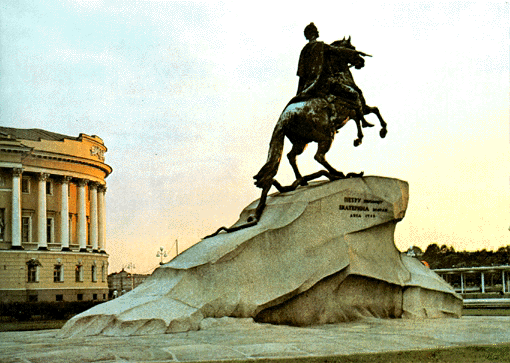

The St. Petersburg State Academy of Culture,
The Faculty of Library and Information Studies
The oldest Russian program for educating librarians is located in St. Petersburg at the State Academy of Culture on the banks of the Neva River. Professor Yelena P. Sudarikova heads the 76-member Faculty of Library and Information Studies. Seven departments make up the Faculty: (1) general library science, (2) general bibliography, (3) bibliographic humanitarian information, (4) technical information, (5) children and young adults, (6) informatics, and (7) psychology and sociology of reading.
At present, 700 students study full-time at the Academy. Entrance to the program is by examination (which offers a uniform assessment) and it is competitive (2 applicants per position). Students prepare a thesis in their last year and then sit for their State examinations in Russian literature, foreign literature, and one foreign language such as English, French, German, or Japanese. Formerly, the State automatically placed students upon graduation; now they must find their own jobs on their own or through an agency. My student interactions suggest that they are serious scholars, well-educated, and many are fluent in English.
The Faculty recently shifted their curriculum to a five year program resulting in a Diploma equivalent to our first university degree with an upper class concentration like our MLIS degree. The new curriculum is equally divided between humanities cour ses and courses on bibliographical and library subjects. The latter covers theoretical training in familiar subjects including informatics and user services.
The facilities of the Academy are in two converted palaces; major renovation is underway in one wing. The Academyís Library has 600,000 volumes and 386 class computers are present. However, no e-mail service or LANís are available as yet. Facsimile transmission is common, though.
The professors and students are facing difficult times due to the economic and political changes since the early 1990s. I am appreciative of their hospitality in these turbulent times and thank ALISE, with funding from IREX and the H.W. Wilson Foundat ion, for allowing me to observe developments at the leading school for library studies in Russia during the Spring of 1996.
For a complete report, see "Education for Library and Information Science in Russia: A Case Study of the St. Petersburg State Academy of Culture," Journal of Education for Library and Information Science Education 39 (Winter 1998): 14-27.
John Richardson Jr., 1996 ALISE Visiting Scholar and (then Associate) Professor, UCLA